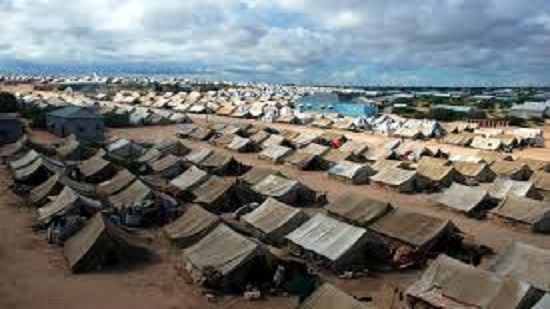Almost seven years have passed since the outbreak of the Syrian Revolution in 2011 when the first demonstrations broke out in the capital Damascus and the southern city of Deraa calling for the overthrow of Syrian President Bashar Al-Assad and his government.
Refugees protected by international law
By-Salma El-Nashar- Ahram
Opinion
00:08
Monday ,20 August 2018

The subsequent seven years have been plagued by a full-scale civil war, terrorist incidents and generalised armed conflict, leading to the displacement of nearly five million Syrian citizens outside Syria, according to UN figures.
Around five million Syrian refugees have thus been forced to seek new homes in neighbouring countries like Turkey, Lebanon, Jordan and Egypt. Some European countries have also been destinations for Syrian refugees, while others have closed their borders.
A few weeks ago, the Russian Defence Ministry sent a proposal to Washington to organise the return home of the Syrian refugees after agreements reached by Russian President Vladimir Putin and his US counterpart Donald Trump.
The Russian initiative has been supported by some neighbouring countries, including Lebanon, but it has been rejected by others and by international organisations.
The United Nations, for example, has explained that “the conditions for the return of the refugees to Syria are not yet fulfilled.”
There is no doubt that the Syrian refugees will one day return to their homeland and their cities and their villages which they have been forced to leave.
They will return one day to rebuild their country and contribute to its reconstruction after it has been destroyed by terrorism and sectarian conflicts for years.
However, the question that must be asked is whether the Syrian refugees can be forced to return to Syria. The answer, according to international law, is no. They can voluntarily return to their homeland, but they cannot be forced to return.
International law has long been concerned with the protection of refugee rights, as after World War II ended in 1945 some seven to 11 million people were considered to be displaced persons or refugees.
International law finds its main sources in international conventions and treaties, in customary international law, and in the general principles of law recognised by civilised nations.
International humanitarian law is one of the branches of international law that applies in cases of armed conflict, being “the laws of war” which are different from the international human rights law that defines the rules on the protection of human rights at other times.
The UN Refugee Convention of 1951 and the Protocol of 1967 relating to the status of refugees outline the basic rights of refugees after defining the term “refugee” in its first article.
The United Nations drafted this Convention for the Protection of Refugee Rights after World War II, enumerating the rights of refugees as including the right to housing, the right to practice a profession, the right to education, to freedom of thought, to movement and to access to the courts. It also set out the legal obligations of countries hosting refugees to protect them.
The Universal Declaration of Human Rights, approved in December 1948 by the General Assembly of the United Nations, also sets out the international legal basis of human rights. It affirms the principle that human beings shall enjoy fundamental rights and freedoms without discrimination, explaining in its Article 14 the right of every person to seek security and to ensure his protection and the protection of his family in other countries if their rights and freedoms are violated within the territory in which he resides.
The Geneva Refugee Convention of 1951 added international legal protections to refugees in its Article 33 under the title of the Prohibition of Expulsion or Return. This states that no state party to the convention shall expel or return a refugee in any way to the borders of the territory in which his life is threatened.
As a result, the return of the Syrian refugees to their homeland is coupled with providing proper conditions, a suitable environment, security and stability, and a political, social and economic basis to receive them. The Syrian refugees should be encouraged voluntarily to return to Syria under safe and humane conditions in order to contribute to the improvement of the country. But they should not be forced to return to an unsafe environment.

